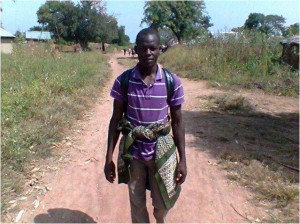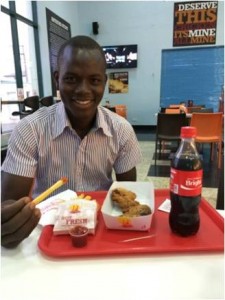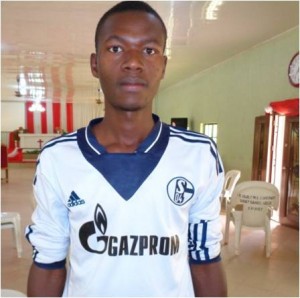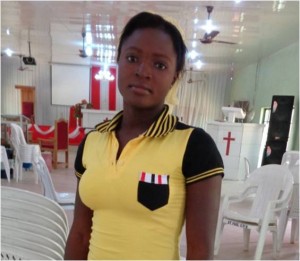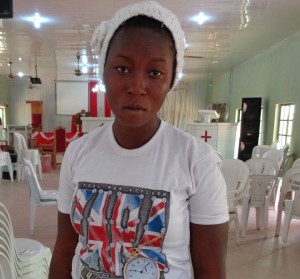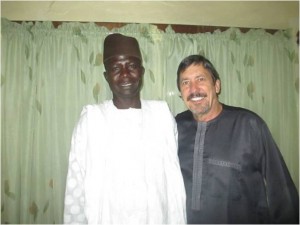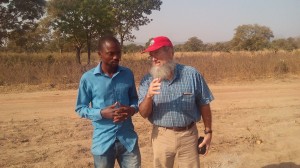Reflections by Zander
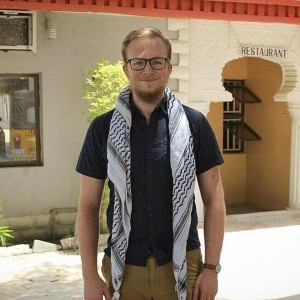
Zander
I spent five days in Maiduguri. For the three days of trauma healing workshops, I spent each day with a different group. The leaders were Dlama Kagula, Esther (I missed her last name, but the has a master’s from the UK), and Rev. Toma. That was an amazing experience in itself. LCC Maiduri Centre is HUGE. It was especially amazing to see how the Rwandan HROC model of trauma healing was adapted to fit the Nigerian experience.
Each day, I saw wider smiles; one could really see that many of these faces didn’t remember how to smile. I did my best to remind those in the workshops (and those facilitating) that they’re not alone, that people all over the world are thinking about them, and that the Church of the Brethren in America, especially, is with them. That brought a warm response and was a much-needed message for them to here.
Maiduguri itself is a very interesting city. The roads are good, and wide, and maintained. There’s ample evidence of city planning. There were sidewalks and flood management ditches. It felt much more like the Middle East than it did to Jos and Abuja. It was also much cleaner than the other places I’ve been (although, the rivers still run with trash and every empty lot is a small landfill). The electrical system was bombed two years ago, so the entire city runs on either solar or generators. Also, it basically under full military occupation. It felt a lot like the West Bank at times, but it was nice to know the soldiers were actually there to protect the people this time. There was an attempted suicide bombing at a mosque in town my first night, two guys blew themselves up early and no one was seriously injured. I honestly only knew about it because I was checking the local news while I was there. I made sure to share it on social media so that no one else in the US that knows I’m here would find it first and worry.
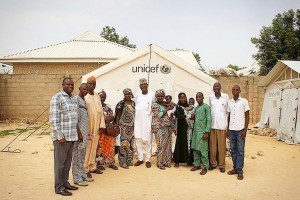
IDP School at LCC Polo
Maiduguri has 22 IDP camps in it. We visited two of them and a school that some EYN IDPs started for IDP kids. They started the school because the government schools in the camps are Islamic schools, which makes sense, I don’t think we can really blame the government too much for that. It seems that EYN, in particular, is very adamant that their kids go only to Christian-based schools. So, since the government isn’t contributing to the IDP school in LCC Polo’s parking lot, UNICEF, UNHCR, Save the Children, the EU, Japan, EYN, and CoB have all contributed to this school of over 700 children with all volunteer teachers. One of the camps we visited, which is about the size of LCC Utako’s compound, houses 7,456 IDPs. We were going to visit more, but a lot of them have recently added people so they didn’t want to take me without a security detail and there wasn’t time to put one together (so the story goes). I spent most of my time with Kadala, we had a good time and had good conversation about trauma healing, the HROC model, and sustainable relief.
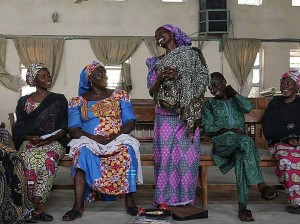
Smiles at the end of the Trauma workshop
One concern that Dlama did bring to me was that the Rwandans weren’t all in IDP camps when they went through trauma healing. The Nigerian adaptation is supposed to bring tangible relief the week before trauma healing to fulfill some basic needs in the hierarchy of needs so that people can focus on the trauma healing process. This doesn’t always fully happen and, even when it does, there a real difficulty of participants finding transportation to the workshops since most of them are in IDP camps and have to go a distance to get to the workshops. Dlama ended up paying for the transportation of a few participants out of pocket. Also, everyone thought it was hilarious when I ate egusi soup with my hands with them.
The only hang-up I had in Maiduguri was an argument I had with immigration when I was flying out who claimed that I should have a work visa instead of a tourist visa. I must’ve answered a question wrong without thinking or something. I eventually got him laughing and got him to let it go. It also took a while for me to convince them that I wasn’t U.S. Army, U.N., or a Journalist when I got there. That was pretty funny (:
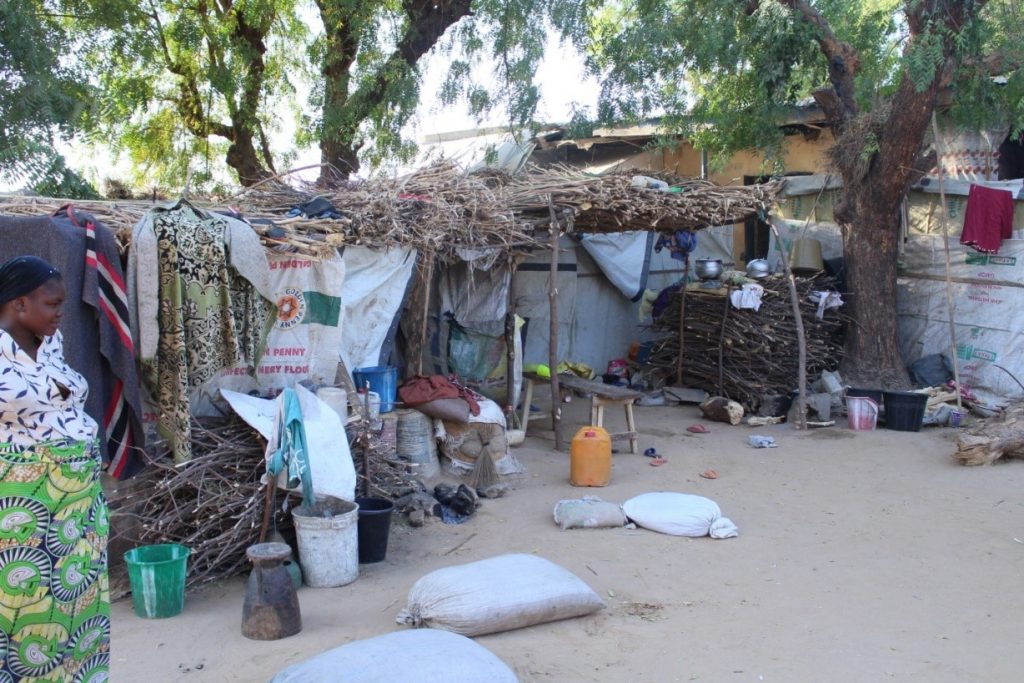 The people are crowded into a small compound with 9-13 people sleeping in one 10X10 “tent” right next to the next one. There is often a lack of sufficient food for the camp, medical assistance is minimal, and many children are still not attending any school.
The people are crowded into a small compound with 9-13 people sleeping in one 10X10 “tent” right next to the next one. There is often a lack of sufficient food for the camp, medical assistance is minimal, and many children are still not attending any school.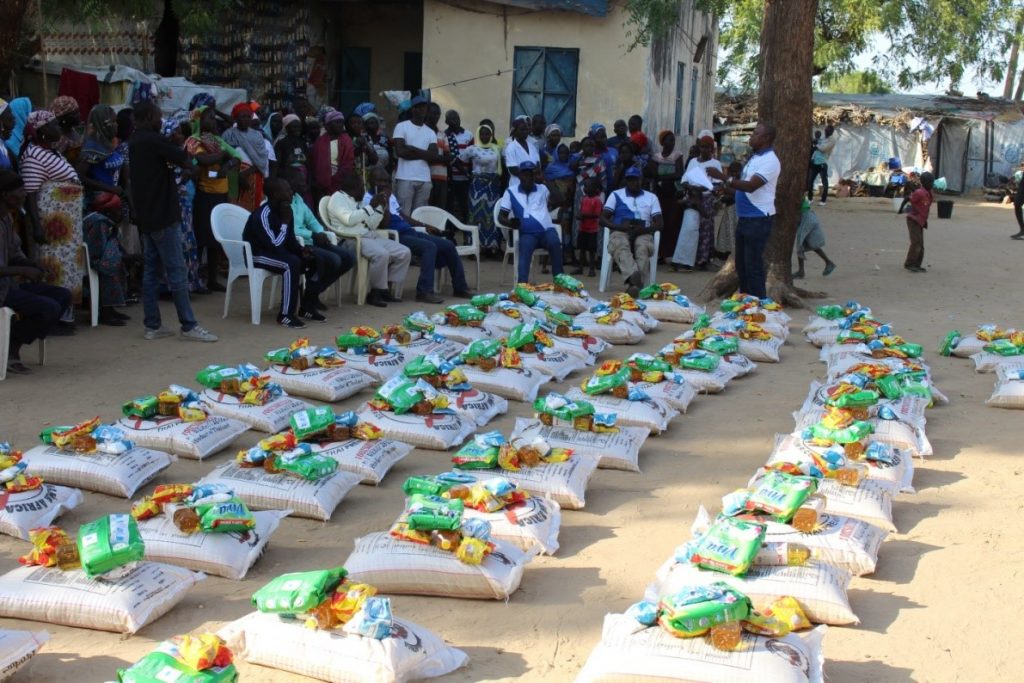 The Disaster Ministry registered the people at these two camps and brought food supplies.
The Disaster Ministry registered the people at these two camps and brought food supplies.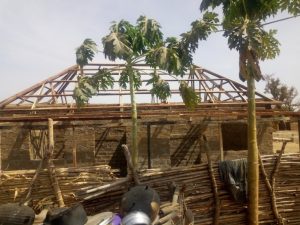
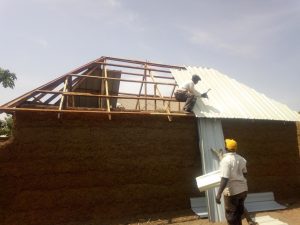 Pictures are by EYN Disaster Team
Pictures are by EYN Disaster Team




